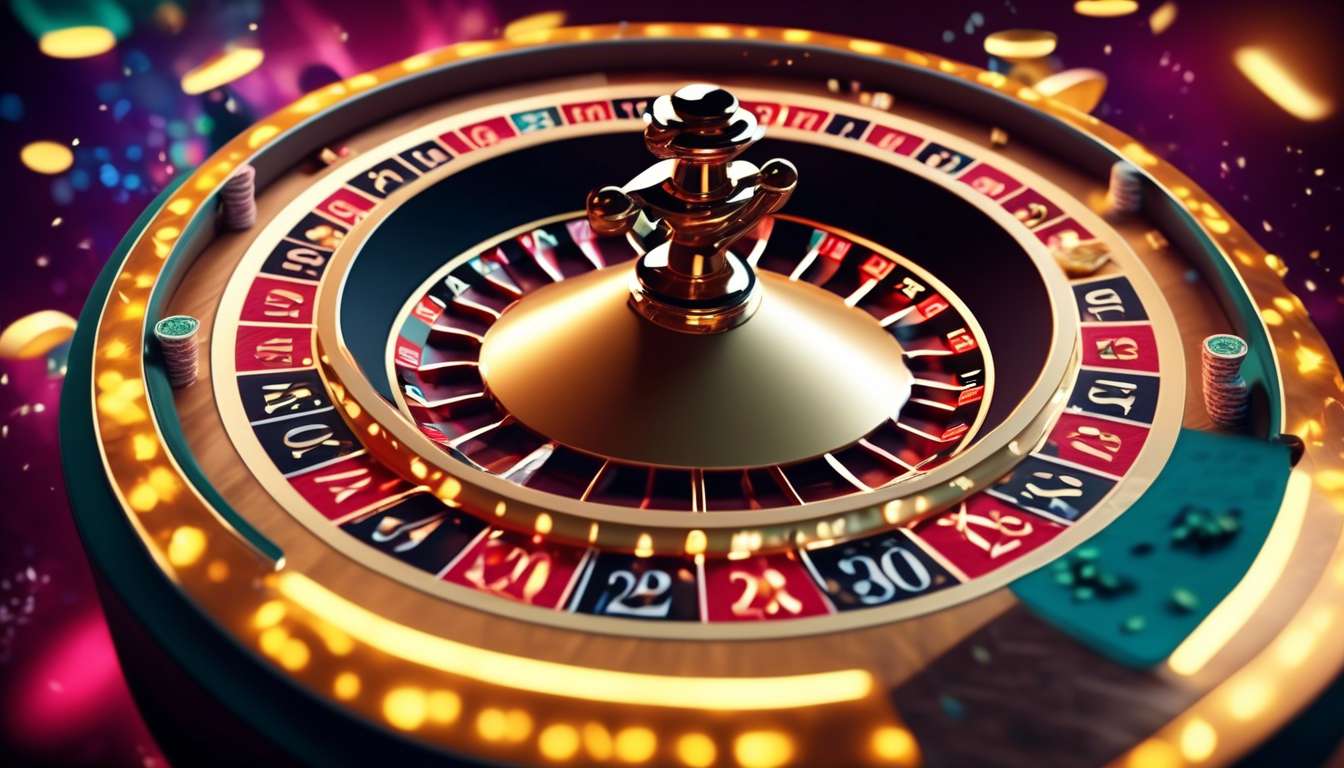In the exhilarating world of high stakes poker, where fortunes can change with the turn of a card, we find ourselves drawn to the thrill and challenge of this ultimate strategic showdown. As seasoned players, we’ve learned that the key to success is not just in the cards we hold, but in the confidence we exude at the table.
Together, we’ve faced the nerve-wracking pressure and the adrenaline rush that comes with each hand, understanding that the mental game is as crucial as the physical one. In this article, we aim to share the insights and strategies that have helped us maintain composure and assert ourselves in high-stakes environments.
Key Strategies for High-Stakes Poker:
-
Reading Opponents:
- Pay close attention to betting patterns.
- Observe body language and facial expressions.
- Identify any tells or habits.
-
Managing Bankroll Wisely:
- Set a budget for each session.
- Avoid chasing losses.
- Make decisions based on logic, not emotion.
-
Maintaining Composure:
- Practice mindfulness and focus.
- Control your emotions regardless of the situation.
- Develop a routine to stay grounded.
Join us as we delve into the art of playing confidently in high stakes poker, where every decision counts and the rewards are substantial. By integrating these strategies, you can enhance your gameplay and increase your chances of success at the poker table.
Mastering Mind Games
In high stakes poker, we must hone our ability to read opponents’ tells and manipulate perceptions to gain a strategic edge. It’s all about mastering mind games, which requires us to maintain emotional stability even when the stakes are high.
When we sit at the table, we’re not just playing cards; we’re playing people. Our shared experiences in the game create a bond, a camaraderie that only fellow players understand.
Strategic thinking is essential to:
- Anticipate opponents’ moves
- Use insights to influence their decisions
It’s not just about what cards we hold, but how we present ourselves. Are we confident, or do we show signs of uncertainty? The key is to project an image that suits our strategy, misleading others while we remain grounded and composed.
Together, as part of this community, we learn from:
- Each hand
- Each bluff
- Each call
By mastering these mind games, we elevate our play and deepen our connection with the poker world.
Enhancing Observation Skills
Sharpening Observation Skills
Sharpening our observation skills allows us to detect subtle cues and behaviors that can reveal critical information about our opponents’ hands and intentions. In the world of high stakes poker, where mind games are as crucial as the cards themselves, being observant gives us an edge.
- We notice when a player shifts in their seat.
- Hesitation for a moment too long can signal uncertainty or a bluff.
These observations become our tools for strategic thinking, guiding our decisions with precision.
Emotional Stability
Emotional stability plays a key role in our ability to observe effectively. When we’re calm and composed, we’re better equipped to read the room and spot patterns others might miss. We become like a well-oiled machine, smoothly integrating what we see into our gameplay.
By focusing on our opponents and maintaining our cool, we foster a sense of belonging at the table, where our poker family respects our skill and intuition. Together, we navigate the complexities of the game with confidence and insight.
Implementing Budget Control
Managing our bankroll with discipline ensures we stay in the game longer and make decisions based on strategy rather than desperation. By setting limits and sticking to them, we foster a sense of control and community among fellow poker enthusiasts who respect this crucial aspect of the game.
Budget control isn’t just about numbers; it’s about mastering mind games and maintaining emotional stability, both key elements in high stakes poker.
We know the thrill of a big win can cloud our judgment, but with strategic thinking, we avoid the pitfalls of impulsive betting. Our collective goal is to enhance our poker skills while ensuring financial longevity at the table.
We embrace the shared experience of disciplined play, knowing it strengthens our resolve and connects us with others who value smart, calculated decisions.
By integrating budget control into our play, we secure our place in the vibrant poker community, ready to face each hand with confidence and clarity.
Avoiding Emotional Decisions
In high stakes poker, keeping emotions in check is crucial as it directly impacts the quality of our decisions and our overall success. Poker is as much about mind games as it is about the cards we’re dealt. When emotions take control, we risk compromising our strategic thinking.
It’s essential to approach each hand with a clear head, focusing on the logical aspects of the game rather than our feelings in the moment.
Poker requires emotional stability. Our opponents are constantly watching for any sign of weakness. By maintaining a calm demeanor, we can prevent them from gaining an edge.
Together, we cultivate an environment where we feel supported and confident, leveraging each other’s strengths. By avoiding emotional decisions, we make calculated moves that uphold the integrity of our strategy.
Let’s focus on staying grounded, using our shared experiences and collective wisdom to navigate the high stakes with precision.
Key Points to Remember:
- Keep emotions in check to maintain strategic thinking.
- Approach each hand with logic, not emotion.
- Maintain emotional stability to prevent opponents from gaining an edge.
- Cultivate a supportive environment and leverage collective strengths.
- Make calculated decisions to maintain strategic integrity.
Cultivating Emotional Stability
To cultivate emotional stability in high stakes poker, we must consistently practice mindfulness techniques that help us stay calm and focused. Together, we can create a strong foundation that resists the chaos of mind games. By uniting our efforts, we reinforce a sense of belonging, which is crucial in maintaining our composure at the table.
Mind games play a significant role in the poker world, and it’s essential that we master them. We do this by:
- Paying attention to our thoughts and feelings
- Ensuring they don’t cloud our judgment
Emotional stability isn’t just a goal; it’s a necessity for thriving in high stakes environments.
Let’s remember that poker is as much about people as it is about cards. It’s crucial to:
- Read opponents effectively
- Avoid letting emotions dictate our reactions
Establishing control over our inner world allows us to:
- Engage in strategic thinking
- Improve our decision-making
- Enhance our game
Together, we can face any challenge poker throws our way.
Embracing Strategic Thinking
We need to develop a keen understanding of probability and risk to make informed decisions at the poker table. By embracing strategic thinking, we can elevate our game and connect with the poker community on a deeper level.
Strategic thinking isn’t just about the cards we hold; it’s also about mastering mind games and predicting our opponents’ moves. This gives us the edge to anticipate and counteract their tactics.
In this high-stakes environment, emotional stability is crucial. It’s easy to get swept up in the excitement or pressure, but maintaining our composure allows us to think clearly and stick to our strategy. By doing so, we not only enhance our personal game but also earn respect and acceptance from fellow players, building a sense of camaraderie.
As we refine our strategic thinking, we become more adept at:
- Analyzing situations
- Weighing risks
- Making calculated decisions
Together, let’s cultivate these skills and strengthen our position at the poker table.
Strengthening Focus and Awareness
To excel in high-stakes poker, sharpening our focus and heightening our awareness of every detail at the table are essential. It’s about more than just the cards in front of us; it involves recognizing the subtle cues and mind games our opponents might employ.
By observing their behavior and betting patterns, we can:
- Anticipate their strategies
- Respond with precision
Maintaining emotional stability is crucial. We can’t let a bad hand or a bluff gone wrong shake our confidence. It’s essential to remain calm, collected, and in control, ensuring we don’t reveal any tells that could put us at a disadvantage. Emotional stability allows us to:
- Keep our heads clear
- Make decisions rooted in strategic thinking rather than impulsive reactions
Together, we refine our focus, not just to see what’s obvious, but to sense underlying dynamics. By strengthening our awareness, we build a community of players who thrive on mutual respect and shared growth in the game’s intricate dance.
Establishing Pre-Game Rituals
Developing effective pre-game rituals can set the tone for our performance and boost our confidence as we prepare for high-stakes challenges. By establishing these rituals, we tap into a shared experience that enhances our sense of belonging and unity. We’re not just individuals at a poker table; we’re part of a collective striving for success.
Mind Games:
- Engage in focused visualization by picturing yourself executing perfect strategies and maintaining composure.
- This mental rehearsal primes you for Strategic Thinking, sharpening your ability to make quick, informed decisions.
- As you visualize, reinforce your Emotional Stability, crucial for handling the unpredictable nature of poker.
Creating a Centering Routine:
- Choose a specific breathing exercise to calm and focus the mind.
- Curate a playlist that hypes you up and sets the right mood.
- Take a quiet moment for meditation to ground yourself.
By incorporating these elements, our rituals become a personal sanctuary. We’ll walk into the game grounded, ready to face anything, knowing we’re all in this together.
How can I identify and exploit weaknesses in my opponents’ playing styles?
To identify and exploit weaknesses in our opponents’ playing styles, we follow a strategic approach:
1. Observation:
- We closely observe their actions at the table.
- Pay attention to their betting patterns, tendencies, and reactions to different situations.
2. Analysis:
- Analyze the information gathered to pinpoint areas where opponents may be vulnerable.
3. Adaptation:
- Adjust our strategy accordingly to exploit these weaknesses.
- Stay alert and adapt during the game to take advantage of any opportunities that arise.
By effectively combining observation, analysis, and adaptation, we can enhance our chances of success against our opponents.
What are the most effective strategies for bluffing in high stakes poker?
Bluffing in High Stakes Poker
When bluffing in high stakes poker, focus on two key elements: timing and observation.
Observation:
- Carefully study opponents’ tendencies.
- Look for patterns that can be exploited.
Timing and Execution:
- Choose the right moments to bluff.
- Project confidence to make the bluff believable.
Balanced Bluffing Strategy:
- Mix bluffs with strong hands.
- Keep opponents guessing to maintain unpredictability.
Essence of Effective Bluffing:
- Ability to deceive.
- Create doubt in opponents’ minds.
By mastering these aspects, you can execute successful bluffs in high-stakes games.
How do I determine the optimal betting size in different situations?
When deciding on the best betting size for each situation, it’s crucial to consider several factors:
-
Hand Strength: Assess the strength of your hand in relation to the community cards and potential hands your opponents might have.
-
Opponents’ Tendencies: Observe and analyze how your opponents play. Are they aggressive or passive? Do they bluff often?
-
Overall Game Dynamics: Consider the pace and flow of the game. Is it a tight or loose table? Are there any specific patterns or trends?
By analyzing these elements, you can make informed decisions that maximize your chances of success.
Adjusting bet sizes based on the specific circumstances can help you:
- Maintain control of the pot.
- Keep your opponents guessing.
Trust your instincts and stay adaptable at the poker table!
Conclusion
In conclusion, hone your poker skills by focusing on several key areas:
-
Mind Games: Master the psychological aspect of poker to outwit your opponents.
-
Observation Skills: Enhance your ability to read other players and pick up on subtle cues.
-
Budget Control: Implement strict financial management to sustain long-term play.
-
Emotional Decisions: Avoid letting emotions dictate your decisions to maintain objectivity.
-
Emotional Stability: Cultivate a calm demeanor to prevent tilting during games.
-
Strategic Thinking: Embrace a strategic approach to anticipate moves and counter strategies.
-
Focus and Awareness: Strengthen your concentration and remain aware of all table dynamics.
-
Pre-game Rituals: Establish routines to mentally prepare yourself before each session.
With confidence and practice, you can elevate your game and succeed in high stakes poker. Stay focused, stay disciplined, and trust in your abilities to come out on top at the table.
Good luck, and remember to play smart!




